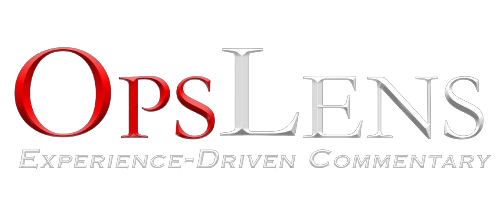Are Christians united more by politics than Jesus?
In a recent Washington Post opinion article, author Shadi Hamid argues that a peculiar partnership has emerged between politics and religion: Those who profess to be Evangelicals largely support former President Donald Trump.
In the article, Hamid asks, “How can people who prize moral rectitude and personal witness to Jesus so faithfully support the most secular president in American history, someone who seems by his behavior at best indifferent to Christianity?”
This generalization about Evangelicals’ political opinions is just that—a broad-brush stroke categorization over millions of Americans. But more importantly, even in these generalities, the correlation between religion and politics shouldn’t surprise us.
While identification of “nones”—those who claim no religious affiliation—has grown, religious association and political identification has seemed to increase in correlation, according to data from Pew Research Center.
“Americans are becoming less religious, but more of them are becoming Evangelicals — or at least claiming the label as a badge of partisan identity,” Hamid wrote. “Religion matters, even when it’s not really about religion.”
Hamid is right about that: Religion matters.
A person’s religion, regardless of affiliation, without a doubt informs his political beliefs and worldview. Every person, whether he admits it or otherwise, holds a worldview. Beliefs are simply part of what it means to be human.
Every conversation or interaction flows based on our various opinions and perspectives: “What do you think about this? Why?” When faced with these questions, we instinctively evaluate our opinions according to whatever moral code, and worldview, we hold.
Because a worldview informs daily life and conversations, clear and solidified understanding of what exactly one believes is essential.
And here’s where Hamid’s numbers may make Christians groan.
“Evangelicalism, in short, has become about shared political convictions,” Hamid wrote.
Hamid cites a survey in which 43 percent of Evangelicals said they did not believe in the divinity of Christ, and he references a report that says church membership across all Americans has sunk under 50 percent. Additionally, he points to a study saying that 14 percent of Muslims, 12 percent of Hindus, and 5 percent of Jews identify as Evangelical Christians.
So, with this disparity, is Evangelicalism a unified worldview?
According to the National Association of Evangelicals, the term Evangelical comes from the Greek, euangelion, which means “the good news,” also termed, “gospel.” The website offers four points of commonality among Evangelicals: the authority of the bible, the redemption of mankind in Christ’s death on the cross, a sinners’ conversion, and an active missionary focus.
According to Hamid, however, Evangelicals align more on political beliefs than religious. He notes Pew Research has mapped an increase of Evangelicals from 25 percent of white adults to 29 between 2016 and 2020 when Trump was president. In addition, he emphasizes that, also between 2016 and 2020, an additional 16 percent of Trump supporters began to identify as Evangelical.
Again, the connection of religion and politics shouldn’t be shocking. Is the rise in Evangelical identification related directly to Donald Trump? Or is it more so that America’s political spectrum has polarized so significantly over the past decade that more Evangelicals align with certain policy positions that Trump—and the political right—currently represent?
For serious Christians, social and political issues such as life, marriage, and education need defending—and these are issues that the two current sides of the political aisle generally have very different opinions on. Therefore, it shouldn’t be a surprise that a majority of Christians align with one side of the aisle—or one candidate—over the other.
But more importantly, convicted Christians don’t place their hope in political institutions. That’s why Hamid’s statistics on Evangelicals’ beliefs and his identification of Evangelicals based on their political convictions instead of their genuine faith are concerning.
And it is especially concerning given political institutions’ wavering on essential moral convictions, such as the protection of life. While the political right is clearly more pro-life than the political left, the recent back-peddling and redefinition from the GOP on pro-life issues should have all Evangelicals and all Christians concerned.
Despite this discouragement, genuine Christians do not place hope in this world—a world of man’s fickleness and sin. The Christian faith holds a history dating over two thousands years back to Christ, and then back to the beginning of the world. Any Christian enters this history of belief.
Christianity provides a framework of truth that presents all of history as a providential working of God’s salvation plan. Any Christian—whether Baptist, Presbyterian, Catholic, or otherwise—must understand this legacy and hold his faith in humble conviction.
